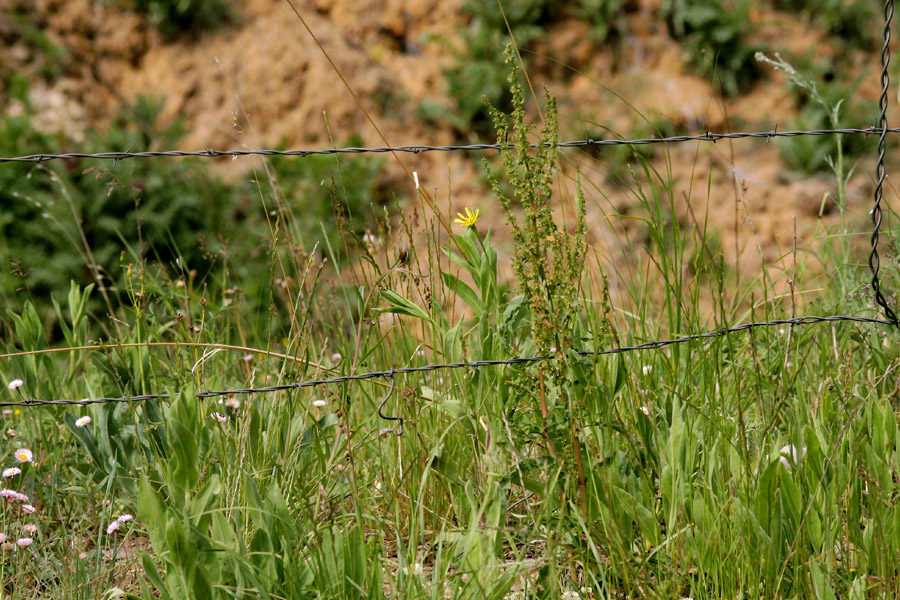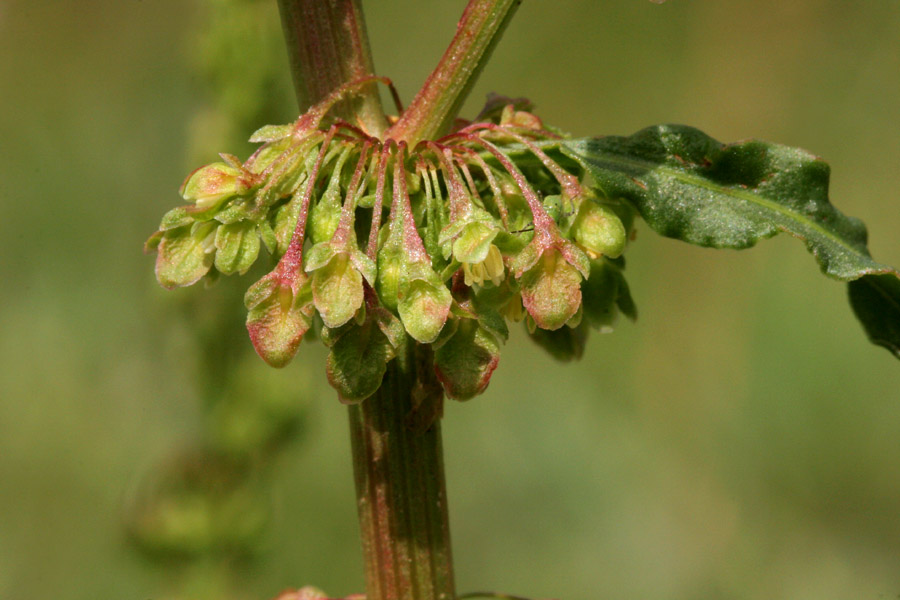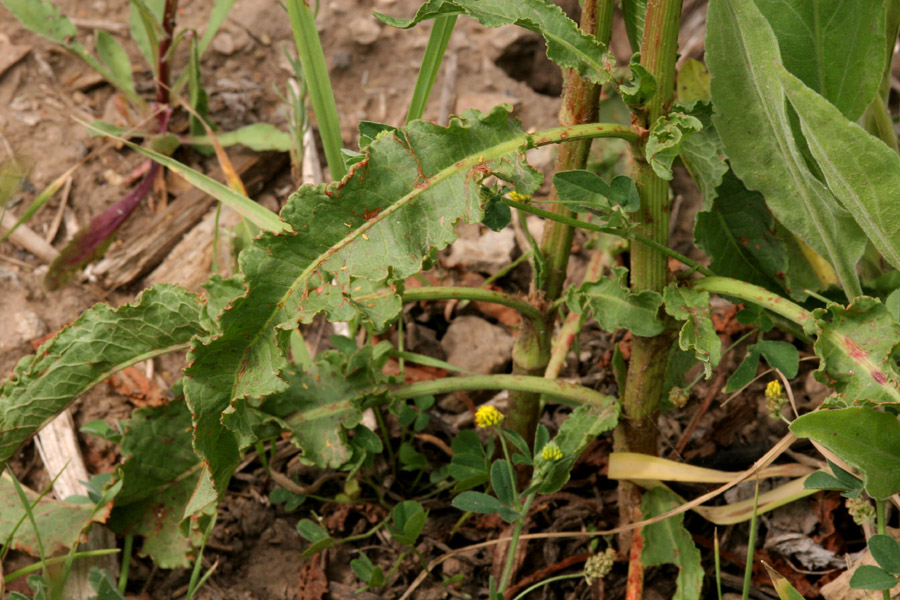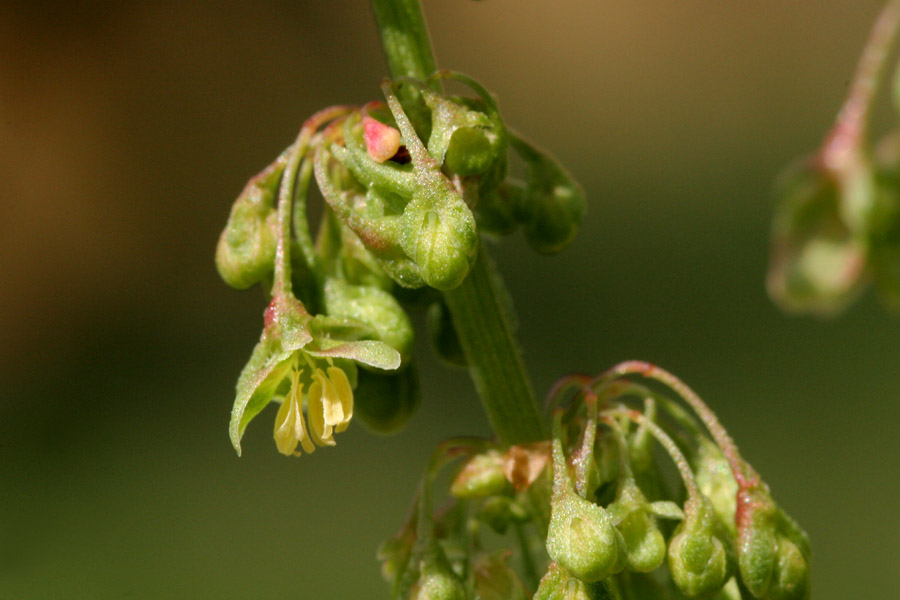Selected Plants of Navajo Rangelands
Navajo tobacco
Dziłnát’oh
(a.k.a. curly dock)

Navajo tobacco, is a perennial plant that grows 1 1/2 to 4 feet high, and reproduces by seed. It generally flowers from June to October.
Young seedlings vary in color from entirely green to red tinged in cooler months. Small flowers occur on the upper portion of the stem, and are yellowish-green at first, but become rosy. then reddish-brown. Flowering is delayed by shoot removal.
Seeds are borne in a large, loose, branching cluster, 1 1/2 to 2 feet long at the top of the stems. Leaves are 3 to 12 inches long (or more including the stalk), with noticeably wavy or curly edges. Smooth, fleshy stems die back each fall, and new ones arise each spring. Stems have swollen nodes and are often reddish in color. The plant has a large, deep taproot, yellowish-orange in color.
Common along roadsides and waste places, it is an aggressive weed in permanent pastures, irrigation ditches, and cultivated fields, especially in association with standing water. Seedlings have a low competitive ability and find it difficult to become established in closed vegetation.
Navajo tobacco prefers deep, moist soil. Seeds and vegetation are toxic to poultry and can cause problems for cattle, sheep and horses. It is an alternate host to many crop diseases.
People have used the plant to treat chronic skin complaints such as psoriasis. It can be useful for constipation. It promotes the flow of bile and has been used to treat jaundice.
*Description courtesy of Utah State University's Range Plants of Utah.



Copyright 2018 New Mexico State University. Individual photographers retain all rights to their images. Partially funded by the Western Sustainable Agriculture Research and Education Program (westernsare.org; 435.797.2257), project EW15-023. Programs and projects supported by Western SARE are equally open to all people. NMSU is an equal opportunity/affirmative action educator and employer..
NMSU does not discriminate on the basis of age, ancestry, color, disability, gender identity, genetic information, national origin, race, religion, retaliation, serious medical condition, sex (including pregnancy), sexual orientation, spousal affiliation or protected veteran status in its programs and activities as required by equal opportunity/affirmative action regulations and laws and university policy and rules. For more information please read the NMSU Notice of Non-discrimination (opens in new window).

